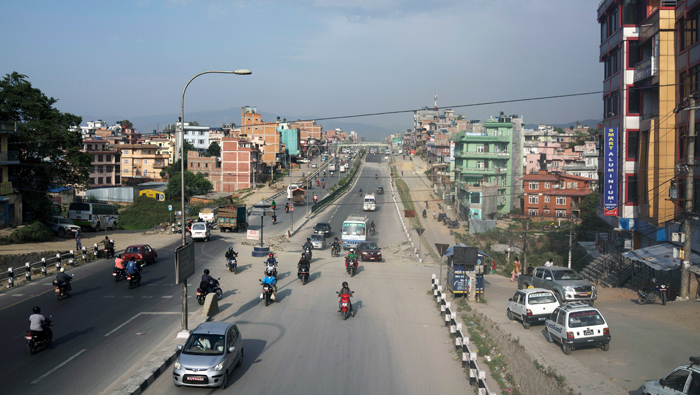
Kathmandu: Nepal's former Maoist rebels joined forces with the largest opposition party on Wednesday to lodge a motion of no-confidence in the prime minister, but the impoverished Himalayan country's embattled leader vowed to fight on. Nepal has been plagued by political turmoil for years and the bid by the Maoists and the Nepali Congress Party to unseat Prime Minister K.P. Oli and form a new government has ushered in another phase of uncertainty.
Oli, who came to power in October, is accused by the one-time insurgents of reneging on promises and on Tuesday they withdrew their support in parliament for his fragile coalition. "We have registered a vote of no-confidence against the prime minister," Pampha Bhusal, spokeswoman for the Maoist party, told Reuters.
"With our party withdrawing support for the Oli government it is in a minority and must resign." A Nepali Congress spokesman confirmed that his party had given the Maoists its backing so a no-confidence motion could be formally registered. The motion will be tabled in parliament next week before a vote is held.
Neighbours India and China compete for influence in Nepal and are both likely to be concerned by the prospect of more instability in a country struggling to rebuild after a devastating earthquake last year.
Oli is Nepal's seventh prime minister since it abolished its 239-year old monarchy in 2008. The Maoists abandoned a bid to unseat him in May after they said he had agreed to work for a national consensus and address their concerns.
Oli's press adviser said the prime minister would remain leader and face the no-confidence vote. "The prime minister will not resign," the adviser, Pramod Dahal, said. With the Maoists and Congress joining forces, Oli's coalition in the 595-member parliament needs the support of other smaller parties to survive.
The Maoists accuse Oli and his party of failing to resolve anger in the south of the country over a new constitution, and of failing to rebuild homes and roads destroyed in last year's earthquake.
Nepal adopted a new constitution in September. Its passing looked like a rare moment of political consensus but protests soon followed.
Minority Madhesis, who live mostly in Nepal's lowlands near India, imposed a four-month border blockade to protest against a proposal to carve Nepal into seven federal states, which they say would divide their homeland and deprive them of a fair say. More than 50 people were killed in clashes before protesters called off the blockade in February.